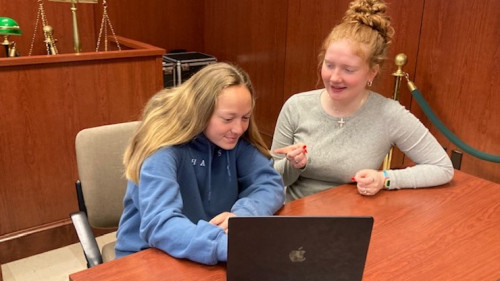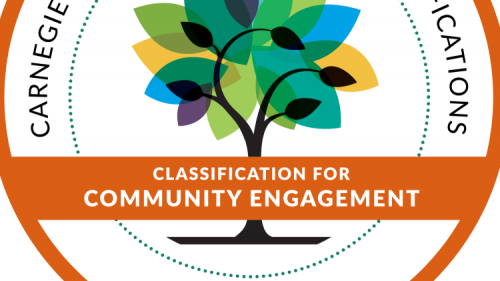
“We are the good people are looking for.”
That was the inspirational nugget of gold in the “anti-keynote” address at Engage for Change (E4C), a regional conference held on campus May 26 that brought together local community engagement practitioners to share best practices and methods for advancing their transformative work.
Peter Gannon, president and CEO of the United Way of the Greater Capital Region, delivered that quote at the opening of the day-long event attended by more than 100 faculty, students and administrators from area colleges and non-profits.
“We can go further when we work together,” Gannon said. “Forget about who gets credit for something. Once that change of mindset happens, goals can get accomplished and you will all get the credit you deserve.”
He went on to say that for a variety of reasons, including the economy and the political culture, nonprofits and those who work with them to affect much-needed societal change are headed for uncertain times.
“We will become more and more stressed, and the only way to survive is to lift each other up. We want to collaborate rather than compete.”
Siena is the designated host for the annual E4C conference, and this is the first time in three years it has been held here on campus and in person due to the pandemic. Attendees took part in their choice of concurrent discussion groups and panel presentations on topics such as game-based teaching and learning; the power of collaborative storytelling; and social responsibility and participatory citizenship in higher education.
Sarah Toledano, assistant director of Siena’s Center for Academic Community Engagement (ACE) said the goal of this year’s conference was to reintroduce attendees to each other and the community engagement process following the COVID shutdown.
“Sometimes you feel like your department is the only one doing this kind of work, and the pandemic made it feel even more so,” said Toledano. “We focused on the importance of communication in serving our partners, and learning from each other in a cohort model. We can do so much more together than we can alone.”
Three members of Siena’s English faculty – James Belflower, Ph.D.; Stacey Dearing, Ph.D. and Shannon Draucker, Ph.D. – shared “10 Tiny Tweaks to Make Your Classes More Inclusive,” which covered impactful teaching methods they compiled, such as collaborative syllabus formatting, more forgiving late work policies, and self-assessed participation surveys.
“These tweaks push us toward ongoing conversations with our students, recognizing that the classroom is a community,” said Belflower.
Elham Malik ’22 and Shriya Matta ’22 presented on their NExT Services work with Friends of Recovery New York, an Albany-based nonprofit that provides counsel and technical support to addiction recovery organizations.
“The conference was an incredible experience for me as someone who has been doing community engaged work for a little over two years now,” said Malik. “Every speaker and presenter had so much experience and kindness to share and I was beyond grateful to learn from all of it. We also enjoyed the opportunity to share our own experiences working with Friends of Recovery and how educators can further increase student involvement on their own campuses.”
Matta welcomed the chance to learn more about community development from different area non-profits as well as other students.
“It was also a great opportunity for me to be able to reflect on the community development I was part of and share those experiences with others,” she said.

